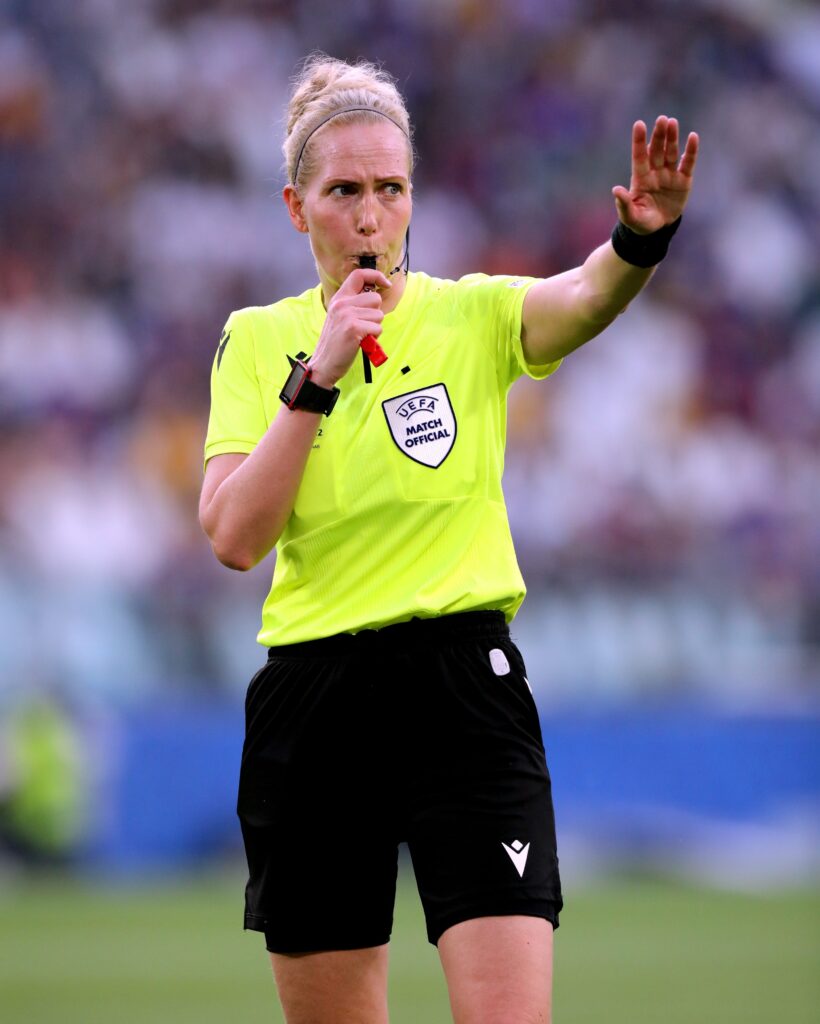As a referee, you have a significant impact on players and club officials, and not just by your implementation of The Laws of The Game.
What you say and how you react to their actions is important too. But it’s sometimes even more subtle than that, a recent study has shown that an official’s facial expressions can impact the emotions and performance of players and club officials.
Why Are The Facial Expressions of a Referee Important?
The relationship between emotions and performance has been extensively studied. When an official talks to a player, along with these interactions comes the display of emotions such as pride or shame. As these can actually influence a player’s development, commitment to the game and performance, it’s vital we get them right.
This is easier said than done, of course. When referees, players or club officials experience emotions, they may not intentionally mean to express them. However, due to the social nature of sports and the importance of teams, when these emotions are expressed (or even suppressed), they will be observed and may influence others.
This can be an automatic response, or even a deliberate attempt to influence players’ actions and thoughts, such as visibly getting annoyed at a player’s aggression towards you so that they will not speak back to you.
These facial and body expressions are so important because they can have a real impact on a player’s behaviour, which includes their performance.
What Have The Studies Shown?
Recent Research has looked at how these nonverbal expressions displayed by referees can influence player performance. The study involved officials giving scripted feedback to footballers immediately after they performed in a game. While giving the feedback, referees displayed an expression of a particular emotion. The players had to then perform the football match again.
The study focused on three emotions: pride, happiness, and shame. The results found that they did impact players’ performance. In particular, pride and happiness benefitted players’ performance, but the display of shame did not.
They also found that in some cases, it didn’t just impact performance, but also the emotions of the player. Players seemed to experience similar emotions to those expressed by their club officials. However, this was dependent on the relationship of the club official and the player: the more the two were closely linked, the bigger the effect. For example, if the club official displayed signs of feeling proud, this would lead the player to feel proud and happy. Similarly, if the referee showed condemnation of player conduct, this led the players to feel ashamed.
What Can Referees Do About Their Facial Expressions?
So, the research clearly shows that officials’ emotional expressions can impact the performance as well as emotions of players and club officials. This has important practical implications for referee-player interactions in sport as officials need to be careful of the emotions they are displaying – not just in the way they are talking to the player, but also in their facial expressions and body language.
Here are some ways to use this to improve your relationship with players and club officials:
- Be aware of the emotions you experience and display when communicating with players and club officials.
- Understand the effects of these emotional expressions on players and club officials.
- Regulate your emotions. Make sure you understand them and the adaptive response they can evoke in players and club officials.
- Educate yourself on how to manage and utilise specific emotions and expressions to optimise outcomes.
- Understand that endorsing positive conduct holds much more power to enhance your players’ performance than shame.
- Remember that these effects are even greater when you have fostered an initial rapport with players and club officials.
Considerations
It is important that referees are aware of the importance that something as small as the way they display their emotions can have a strong impact on the players and club officials they’re managing.
Your communication is vital to their conduct and performance and has a strong effect on their emotions, and your facial expressions are an important part of it. Take care when talking and interacting with players and club officials, you have a great impact on them!
At The Third Team I work individually and in collaboration with different professionals where I have developed workshops and 1-2-1 sessions associated with Resilience and Mental Toughness Development to help referees. The workshops and 1-2-1 sessions are interactive, where referees are encouraged to open up and share their experiences to help themselves and each other.
Feel free to contact me if you’d like to know more about my workshops or 1-2-1 sessions and how I could help you or your officials.
Best Wishes,

Nathan Sherratt
Referee Educator & Managing Director of The Third Team

Nathan Sherratt
Nathan Sherratt, Referee Educator, Resilience Trainer and Managing Director of The Third Team. A Mental Toughness Practitioner based in County Durham, North East England.

